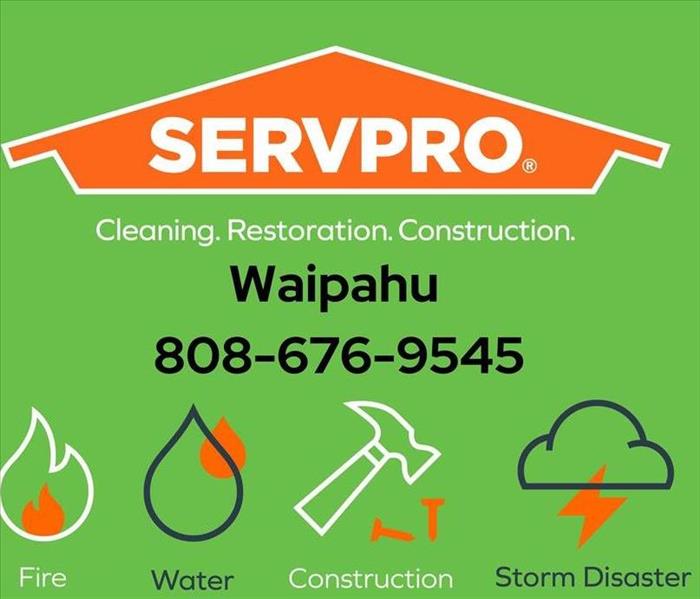Mold: What to do?
4/18/2025 (Permalink)
To deal with mold, the first step is to identify the source of moisture and fix any leaks or water damage. Then, clean mold from surfaces using detergent and water, or diluted bleach or commercial cleaners. Dispose of porous materials like carpet and ceiling tiles if heavily mold affected. Seek a professional: SERVPRO® of Waipahu 808-676-9545 for proper remediation, small or large, or difficult-to-reach mold infestations. Here's a more detailed breakdown:
1. Address the Source of Moisture:
- Identify and fix leaks: Plumbing leaks, roof damage, or other water problems are common culprits for mold growth.
- Control humidity: High humidity can contribute to mold, so consider using dehumidifiers or improving ventilation.
- For hard surfaces: Scrub with detergent and water, ensuring thorough drying.
- Diluted bleach: For tougher mold, a solution of one cup of bleach per gallon of water can be used.
- Commercial cleaners: Consider using commercial mold-killing products, which are often more effective and safer.
- Porous materials: if mold is present on porous materials like carpet, ceiling tiles, or fabric, it's often best to discard them as the mold may be difficult to remove completely.
- Regular cleaning: Cleaning regularly, especially in areas prone to moisture, can help prevent mold growth.
- Improve ventilation: Good ventilation can help reduce moisture and prevent mold growth.
- Control humidity: Using dehumidifiers or controlling humidity in high-humidity areas can help prevent mold growth.
- Large infestations: If the mold is extensive or difficult to reach, consider professional help.
- Severe water damage: If you've experienced significant water damage, professional remediation is recommended.
- Health concerns: If you or someone in your household has allergies, asthma, or other health conditions that make mold exposure risky, seek professional help.
- Wear appropriate PPE: When cleaning mold, especially if it's extensive or you are at risk, wear an N95 mask (or higher, like a P100), disposable coveralls, gloves, and eye protection.
- Seal off the area: Seal off the area being remediated to prevent the spread of spores.


 24/7 Emergency Service
24/7 Emergency Service
